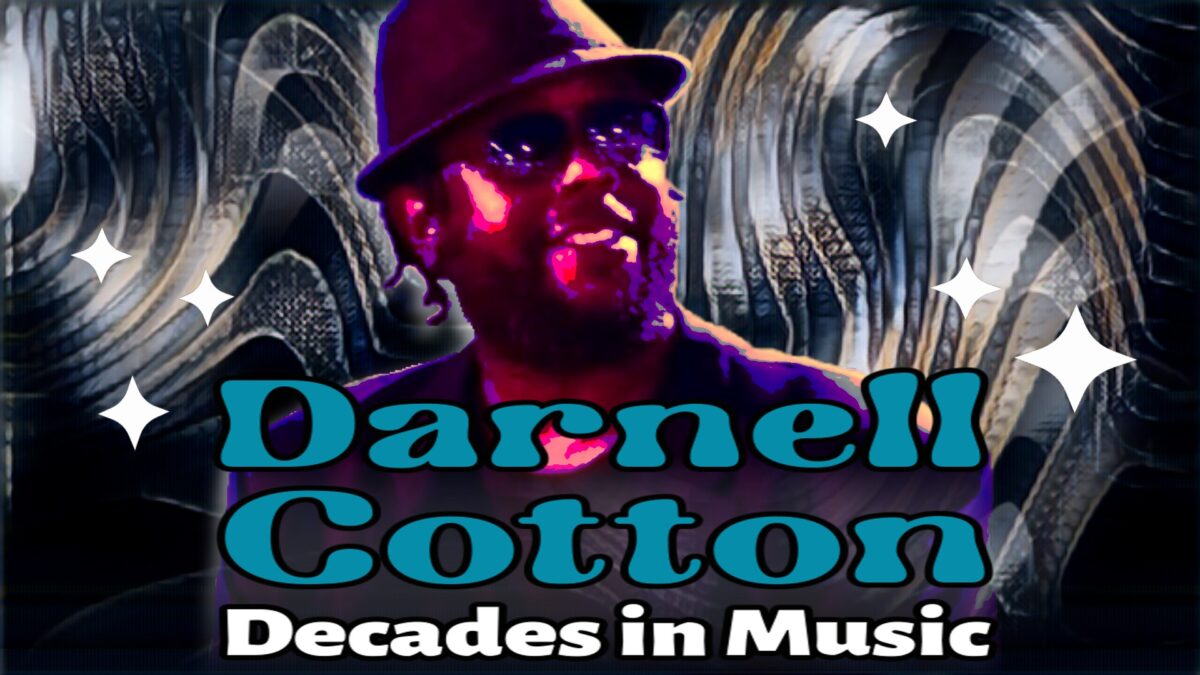For many of us, we can recall where we were when we first heard the sound on the radio. For some of us, we can’t help but smile when we think about how we wore out that first record or cassette. But in the minds and hearts of any fan, one thing was for certain. When we heard rap music for the first time, we knew right then and there nothing would ever be the same again. It wasn’t that it was just distinctive or rare. It was the only sound of its kind… on earth. In time, it would become clear that this wasn’t just a passing fad. And contrary to opposition from taste-makers of the era, its gravitational pull would birth a place of permanence in the world of music.
The year was 1973, and at just seven years of age, Darnell Cotton had caught the bug. In his hometown of Newburgh in upstate New York, a vibration was in the air. At the reigns were people like the D.O.C. & Company, DJ Kid Legend, Charlie Rock, and Eddie On. And in the street was the only place it could be found. Rapper’s Delight, commonly thought of as the first rap song, wouldn’t traverse airwaves for another six years. But on highways in the back seat of a car, rap music would migrate out from Brooklyn to places like parties at Mount St. Mary’s College in Darnell’s hometown. Ambassadors of the new sound would arrive with milkcrates full of vinyl to recruit new disciples. And at seven years old, by way of friends or family, Darnell would find a way in. Captivated, he could see himself on that stage, performing for the crowd. Back at home, with his parents and four siblings, the aural landscape was completely different. Major Harris, Gladys Knight, Earth, Wind, and Fire, The O-Jay’s, Luther Vandross, Teddy Pendergrass, Harold Melvin and the Blue Notes, and The Stylistics projected from those speakers. Darnell had a deep appreciation for this music as well. With one genre sometimes fueling building blocks for the other, in his mind the two styles would go hand-in-hand.
In 1978, his family moved to Baton Rouge, Louisiana. And to put this time into perspective relative to the genre, the first rap song ever produced publicly didn’t even exist at this point. The following year would see the Fatback Band’s King Tim III (Personality Jock), the first rap song ever, pressed to a vinyl B-side. And even then, it was filed under disco and funk and cited on the charts as R&B. Being a time before the internet, his new surroundings were all but untouched by the influences of his old neighborhood. Without the support of radio, the progression of rap music swept across the states by way of people like Darnell. He had been there at ground zero. His mind and his mix tapes were the proof. At this point in time, the people in his new hometown were unaware. He recalled one evening at Leo’s Rollerland on Airway Drive in Baton Rouge, “As a matter of fact, when we came here my brother and them lied to the people and said we were the Sugar Hill Gang and was rapping their song. And when it came out (on the radio), they really believed it!” Over the next four to five years, like the landscape of music itself, Darnell’s life would see many changes. The older brothers he often hung with wouldn’t be around and he would stand on his own.
In 1981, at fifteen years old, Darnell credits himself with throwing the first Baton Rouge DJ party open to the public. He set up shop at a pizza place on Airline Hwy and invited kids his age to come hear him spin records from artists like Afrika Bambaataa, Planet Rock, and Nucleus. Around this time, Darnell befriended a local radio station personality that went by the name DJ Jazzmore. Jazzmore lived near Darnell, and the two would spend hours in a music room dedicated to turntables and vinyl. When the radio station opted for a change of format in ‘82, Darnell befriended his replacement, DJ Iceman. Iceman shared Darnell’s interest in rap music and would often DJ at events spinning it. Although the craft had yet to bless radio in Baton Rouge, Darnell could watch him cut and scratch live to the reaction of the crowd at Images, a club where Iceman was the resident. And with Darnell visiting New York every summer and returning home with new, unheard-of mixtapes and vinyl, Iceman would be introduced to the latest from rap’s birthplace and recordings of the radio station WBLS w Mr. Magic and Marley Marl. The exposure aided Iceman in his career both on stage and on the radio. In-kind, Iceman would put Darnell on the mic during his nightly mixes. Darnell also wrote a rap song titled The Fresh Mix, which Iceman put in rotation on the radio. This inspired Darnell to produce his own record and go on tour with DJ Iceman in 1983 MCing, beat-boxing, and rapping. Once again, he found himself furthering this migration of rap music. And to put this moment in time into perspective, 1983 would be the year Doug E. Fresh, the founding father of beat-boxing, made his debut in the single Pass the Boo Dah.
1983 was also the year Darnell really started getting into break dancing in talent shows and at basketball competitions. He and his partner were able to book shows that year on the merit of their competitive success. Constantly networking and gaining momentum, Darnell then formed Reality, a group reminiscent of the Fat Boys, at the turn of the year. He would go on to enter his group into the City-Wide Talent Show and win. With victory came a tour, performing at every City-Wide Talent Show at schools and on college campuses across the nation. Recalling a show at Southern University’s Union Hall, Darnell remembers, “Everybody who was somebody at that time, who got record deals or whatever coming up out of here eventually, later on, was in that talent show. And they saved us for last. And when I tell you, when we came out there them people went crazy man. When we got through, the crowd just erupted, everybody stood up.” Reality performed Missing Kids, a song they wrote inspired by a recent child abduction epidemic, to a packed house. And when I say packed, the fire marshal came on-site to prevent any more people from entering the building. Because of their success in this talent show, Darnell was able to get a record deal through Royal Shield Records. His group also appeared on CNN, courtesy of Joann Courrier, founder of Child Keeper’s Foundation. And the governor presented Reality with a plaque for their creative efforts within the social epidemic. Reality did Public Service Announcements and scored #1 slots on radio stations across the nation. But behind the scenes, trouble was brewing. Record companies wanted to sign Reality. But they were under contract at Royal Shield. The children’s foundation wanted to press the record and adopt it as their anthem. All were turned down. And on the heels of a scandal involving missing funds at the record company, their song was pulled by execs at Royal Shield. Darnell had been through extreme highs until this point. And now, at just nineteen years old, he had hit the low. “I guess it really didn’t affect me like that because I was who I was and I’m going to still keep doing what I do. Okay, this ain’t happening no more. It was good while it lasted. But I went on tour with some of the biggest stars…” Even though the record company would go on to fold, Darnell was speaking on the fact that Reality went on a six-month tour with Roger Troutman and Zapp, Ready for the World, Lisa Lisa Cult Jam, and the L.A. Dream Team. Following the tour, further problems within the group concerning management would see its dissolution.
Though he started at such a young age and had been through so much, Darnell has very few regrets. He cited times here and there, where looking back he sees how he may have been stubborn or perhaps leading with his ego. But all-in-all, his misses were logged as lessons learned and taken in stride. Royal Shield may have been the first company to engage in shady business practices against him. But for Darnell, it wouldn’t be the last. Despite underhanded efforts on the parts of several companies… unreported earnings, biased contracts, copyright infringement… Darnell persevered through it all. And no matter what happened, he could always see the darker alternatives just around the corner. But the choices and decisions he made in his life kept him out of trouble and nurtured his passion. He has since started his own record label, 360. He has enjoyed airtime with his work in the Vibe Tribe, a live instrumental group incorporating rapping and signing. He also scored radio play with his gospel track Everyone Finds Their Way Home. And he worked with Mystical on his first solo album following his time with No-Limit Records. He has several albums to his credit, with his latest being Show You How to Love. Darnell was also recently featured in a documentary covering the origins of rap music in Baton Rouge, Diamonds in the Dirt. Time and time again, though life has taken from him, it has validated him. He’s never had to wonder if his talent was good enough because the world has spoken. His passion for the art has not waned. To the contrary, he has begun a new chapter with Grynd Time Entertainment, his newest venture. Currently taking on producers, engineers, and talent, he is seeking to expand his presence in the world of music. To hear specifics on his future endeavors, as well as more stories from his past, check out our podcast interview under his name. A video series will be published on him in January ’23 on our Youtube channel as well.
FB: Darnell Cotton
IG: cottondarnell and darnell.cotton
YT: MrCotton and 100%Cotton
Show You How to Love:
distrokid.com/hyperfollow/mistercotton1/show-you-how-to-love-feat-adlib-2
Diamonds in the Dirt:



















